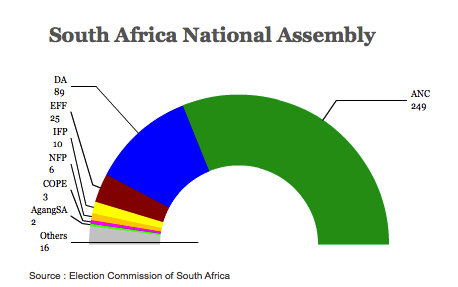
Today’s U.S. — and world — media are likely to be focused on the attack on the U.S. consulate in Benghazi and the resulting deaths of U.S. diplomatic personnel there, including the U.S. ambassador to Libya, Christopher Stevens. 
That’s crazy, given that today has already seen the jarring attacks on the U.S. embassy in Cairo, an attempted assassination on the new Somali president, and amid increasingly public tensions between the United States and Israel over Iran’s nuclear program. And that’s just in the Middle East — today is also a big day for Europe, with the Dutch elections and the German constitutional court’s decision to uphold the European Stability Mechanism.
In the meanwhile, it’s worth noting a little more about Libya’s new interim sort-of leader, Mohamed al-Magariaf, who in a press conference earlier today strongly condemned the hardline Salafist attacks on the U.S. consulate and apologized for the killing of Stevens and other U.S. personnel (in contrast to Egyptian president’s Muslim Brotherhood-backed Mohammed Morsi, who has yet to condemn the Cairo embassy incident):
“On behalf of the presidency of GC, government and the Libyan people we offer deep condolences to the American government, people and the families of the ambassador and other victims,” the statement said.
The statement also said Libya “confirms the strong relations between the Libyan and American peoples which has been further cemented as a result of the US government’s support of the 17 February revolution.”
“While we strongly condemn any attempts of insult the person of the Prophet and our sanctities or tampering with our beliefs,” we reject the use of force and terrorizing innocent civilians, said Magariaf.
Al-Magariaf was elected the president of the General National Congress of Libya on August 12, making him Libya’s interim (for now) head of state. As among the three Muslim countries that the United States has liberated in the past decade, for better or worse, al-Magariaf contrasts with Iraq’s Nouri al-Maliki and Afghanistan’s Hamid Karzai in that he is less corrupt and more dependable. Among the three countries (and Pakistan, too), he is by and far the friendliest and most helpful leader.
Al-Magariaf is from Benghazi, where the attack took place. Benghazi is Libya’s second-largest city and the urban center in the eastern Cyrenaica region of Libya (in contrast to the coastal northwestern Tripolitania and southwestern Fezzan). Benghazi is also, ironically, where the revolt against Libyan strongman Muammar Gaddafi began in 2010.
The GNC, an interim parliament called for the purpose of running Libya’s government until an elected Constituent Assembly can draft a new constitution for Libya, was appointed following Libya’s first free election in decades on July 7 — among the 200 members, 120 seats were reserved for political independents and 80 for political parties.
Among the 80 seats reserved for political parties, Mahmoud Jabril’s National Forces Alliance (تحالف القوى الوطنية) won 39, and it was seen as a victory for moderates — the Muslim Brotherhood’s Justice and Construction Party (حزب العدالة والب) won just 17 seats. Al-Magariaf himself represents the National Front Party (حزب الجبهة الوطنية), a successor to the National Front for the Salvation of Libya, a group al-Magariaf formed in 1981 in opposition to Gaddafi, who ruled Libya from 1969 until just last year.
The National Front Party won just three seats, but al-Magariaf has a long record of opposition to Gaddafi and good relations with the Muslim Brotherhood in Libya. Al-Magariaf is a political liberal more interested in rebuilding Libya’s government and economy than promoting Islamic rule, but is viewed with less suspicion than Jibril, who served in Gadaffi’s administration from 2007 to 2011 as the head of Libya’s National Economic Development Board in an effort to revitalize and privatize the Libyan economy. Although al-Magariaf served as Libya’s ambassador to India until 1980, he defected in Morocco in that year, and remained in exile in the United States as the leader of the National Front until his return to Libya just last year.
Continue reading Who is Mohamed al-Magariaf? →
![]()


